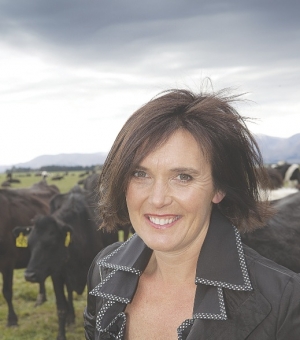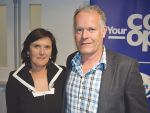ISN’T IT ironic: we had a cooperative structure that simply made us the preferred company to supply; now we need five-point plans to attract and retain milk supply.
And in order to achieve that, which is fundamental to our future and our true intrinsic value, we must apparently dilute farmer capital and give bonus units free to offshore investors such as the CBA bank. CBA holds 7% of the fund and just received a unit issue in the same proportion as a farmer. 100 years of farmer investment in an integrated supply-to-market chain and we now have to give away bits, slice by slice, in a thinly veiled attempt to suppress the share price and get our milk supply back.
This proposal increases the pool of dry shares which applies upward pressure on the fund size, trying to give incentives to farmers to trade their economic rights. Worse, one broker said Fonterra is signalling they may do regular share issues.
While it might make farmers feel good to think they got something for free, I hope they understand the true implications of money printing games and strategy that can only lead to increasing the leak of earnings away from the farm in a steady stream. The biggest winners in this share issue are the offshore banks and institutional investors. They never made any historical contribution to that capital, the earnings of which we have just diluted.
Fonterra makes the announcement on Wednesday afternoon, and claims on the radio at 6am Thursday that “most farmers are happy with the announcement”. That must have been a fast survey of farmer opinion. That summarises for me where our co-operative is at: farmer consultation is a thing of the past.
Fair questions to ask farmers would be: “When you voted for TAF did you understand it would result in the issuing of free units to investors like the CBA bank and offshore institutions? Did you understand the unit traders would value your co-operative share, even though your board told you it wouldn’t? Did you understand the implications for the cooperative of a high share price on future growth of the cooperative?”
And the outgoing chairman is claiming value has been “created”. Value isn’t created out of thin air – temporarily yes, by traders valuing our share as something it isn’t, but not intrinsic value.
Meanwhile our council watches on and scrambles to support the board’s spurious argument that this is all for flexibility. The price of that flexibility, if we can’t stop our board doing regular share issues, is simply death by a thousand cuts of our co-operative.
At the IPO launch, Fonterra issued almost the entire 500M in units to the investors as farmers didn’t want to trade. They issued them at a discount, $5.50, when in the past they had asked farmers to pay up to $6.79 to buy a share to supply the co-op. The units then immediately traded at $6.80 because the IPO had been so hyped by Fonterra itself. That was over $100M of farmer capital gifted to non-farmers. It was lauded by the markets and Fonterra as a raging success.
That was the first waste of farmer capital. Now we have dilution of earnings to try to control share price. The unit holders must be issued a ‘free’ unit at the same rate farmers are issued ‘free’ shares. Thirdly, the fund is fully allocated (because of the first share issue), so if farmers do choose to trade the economic rights of these spare shares they have been allocated, doesn’t that mean Fonterra must purchase them? So we sell them at $5.50 at launch (farmers capital), then buy them back if farmers want to trade at $7 (farmers capital)?
So the farmer who trades the economic rights he has just been given gets paid out probably up to $1.50 more than Fonterra brought in when they issued units, and the rest of the co-op subsidises the difference. That’s a redemption cost Fonterra has created on our balance sheet. Unless, of course, they relax the fund size limits.
Relaxing the limits on the fund size just increases the proportion of investors in our cooperative earnings that benefit from dividends and share appreciation. The lower the milk price, the better off those investors are. As a farmer shareholder I feel completely powerless to stop this ugly circle of long term value destruction for farmers and short term killings for savvy investors – all in the name of ‘flexibility’.
Our cooperative is no longer behaving like a cooperative. Planned or not, our governance decisions seem now to depend on the share price, distracting us from cooperative purpose.
The tail is most certainly wagging the dog. Unit holders driving the share price to where it is are the direct cause of this need for a ‘five-point plan”.
In a simple cooperative, that doesn’t disenfranchise suppliers; governance can focus full-time on maximising profit on-farm to farmer members, rather than chasing milk. Not so now. Who is protecting the farmer interests now?
• Leonie Guiney is a Canterbury farmer and Fonterra shareholder.


















